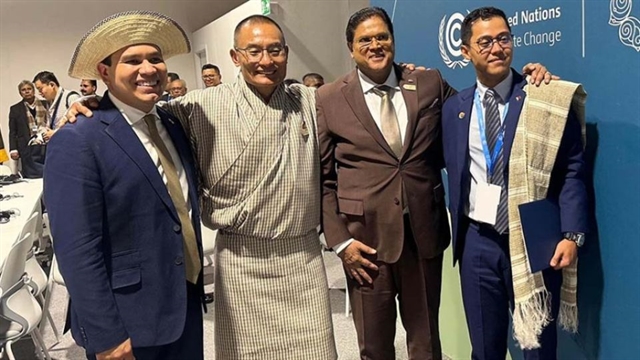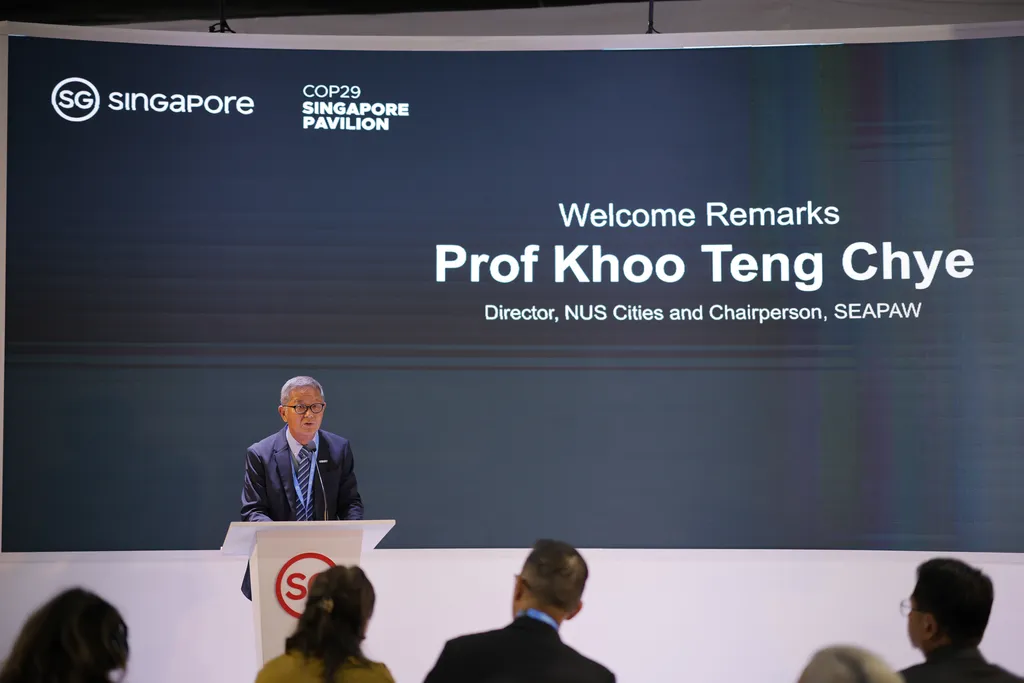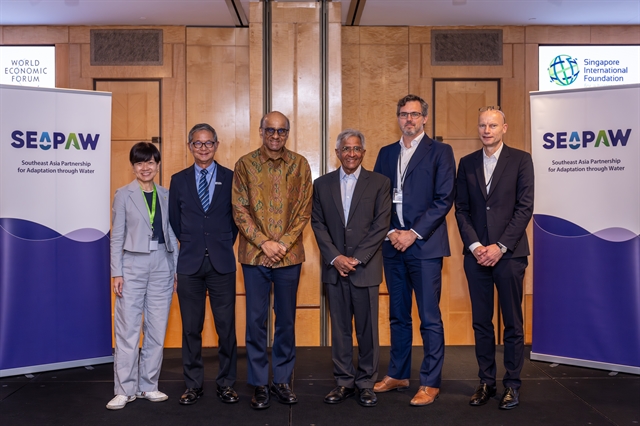 World
World

 |
| Professor Khoo Teng Chye, chairperson of the Southeast Asia Partnership for Adaptation through Water (SEAPAW), announces the first project of the partnership at COP29 on Tuesday. — Photo courtesy of COP29 Singapore Pavilion |
BAKU — The first project of the Southeast Asia Partnership for Adaptation through Water (SEAPAW) is announced by the Singapore International Foundation (SIF) in collaboration with the World Economic Forum on Tuesday.
Launched just five months after SEAPAW was set up, it aims to deliver sustainable, clean water access to rural communities in Sarawak, Malaysia.
This was announced at the Conference of the Parties to the United Nations Framework Convention on Climate Change (COP29). The project reinforces SEAPAW’s commitment to strengthening water resilience as a crucial approach to climate adaptation in Southeast Asia.
The Clean Water Access for Rural Communities pilot project in Sarawak will be led by SEAPAW members, the Singapore Water Association (SWA) and the Malaysian Water Association Sarawak Branch (MWAS).
The project introduces a simple and cost-effective water purification system powered by a renewable energy source, such as hydrokinetic power or solar photovoltaic system, to support underserved regions, ensuring clean, reliable, and sustainable water access to communities in these regions.
If successful, the pilot project could be expanded to support Sarawak’s Post-COVID Development Strategy 2030 goal of 100 per cent full water supply coverage in Sarawak by 2030.
SEAPAW’s role as a convening platform will facilitate connections and resources needed to advance and scale this project for broader impact.
Professor Khoo Teng Chye, chairperson of the partnership, expressed gratitude to the SEAPAW members: “We are developing a comprehensive framework for water resilience with the potential for broader implementation across Southeast Asia. Their dedication to this cause gives me confidence that we can achieve a water-secure future for our region.”
“In line with the recommendations from the Global Commission on the Economics of Water, SEAPAW is committed to driving Southeast Asia-specific projects that address our region’s unique needs. Our goal is to turn these insights into practical, localised solutions that strengthen water security and resilience” he added
SWA Vice President of General Affairs Charles Quek said: “The SWA is honoured to collaborate with the MWAS and SEAPAW on this pilot project, which exemplifies the strength of cross-border partnerships to address critical regional issues.
“By combining expertise from both Singapore and Malaysia, we are building a framework for sustainable water resilience that also has the potential to scale across Southeast Asia. This partnership underscores how practical, regionally informed solutions can create real impact, moving us closer to achieving lasting water security in diverse contexts across the region.”
Mr Kelvin Kuek, Chairman of MWAS said: “Our partnership with the SWA and SEAPAW highlights the critical role of regional collaboration to address Southeast Asia's water challenges. This pilot project in Sarawak is more than a means of improving water access. It is an essential step toward developing scalable, localised solutions that can be adapted to diverse communities.”
 |
| The Singapore International Foundation, in collaboration with the World Economic Forum, launched a regional multi-stakeholder platform to address critical challenges of climate change, focusing on water-related issues, on 19 June 2024. — Photo courtesy of Singapore International Foundation |
Launched in June 2024, SEAPAW aims to catalyse meaningful medium-to-long-term solutions by convening diverse stakeholder groups - knowledge partners, solution providers, financial institutions and philanthropies, as well as governments and policymakers - to collaboratively address urgent water challenges in the region.
Beyond the pilot project, SEAPAW will also advance three projects focused on addressing pressing climate challenges, including sustainable agriculture for food security and farmer livelihoods; research on coastal resilience in Southeast Asia; and the position paper on water adaptation in the region. — VNS